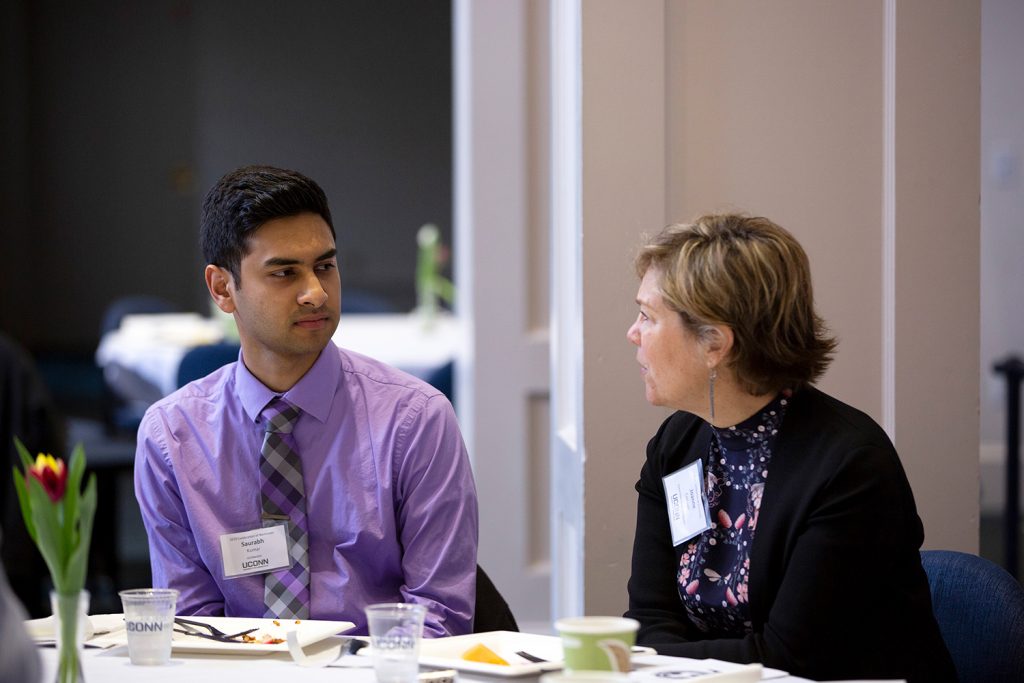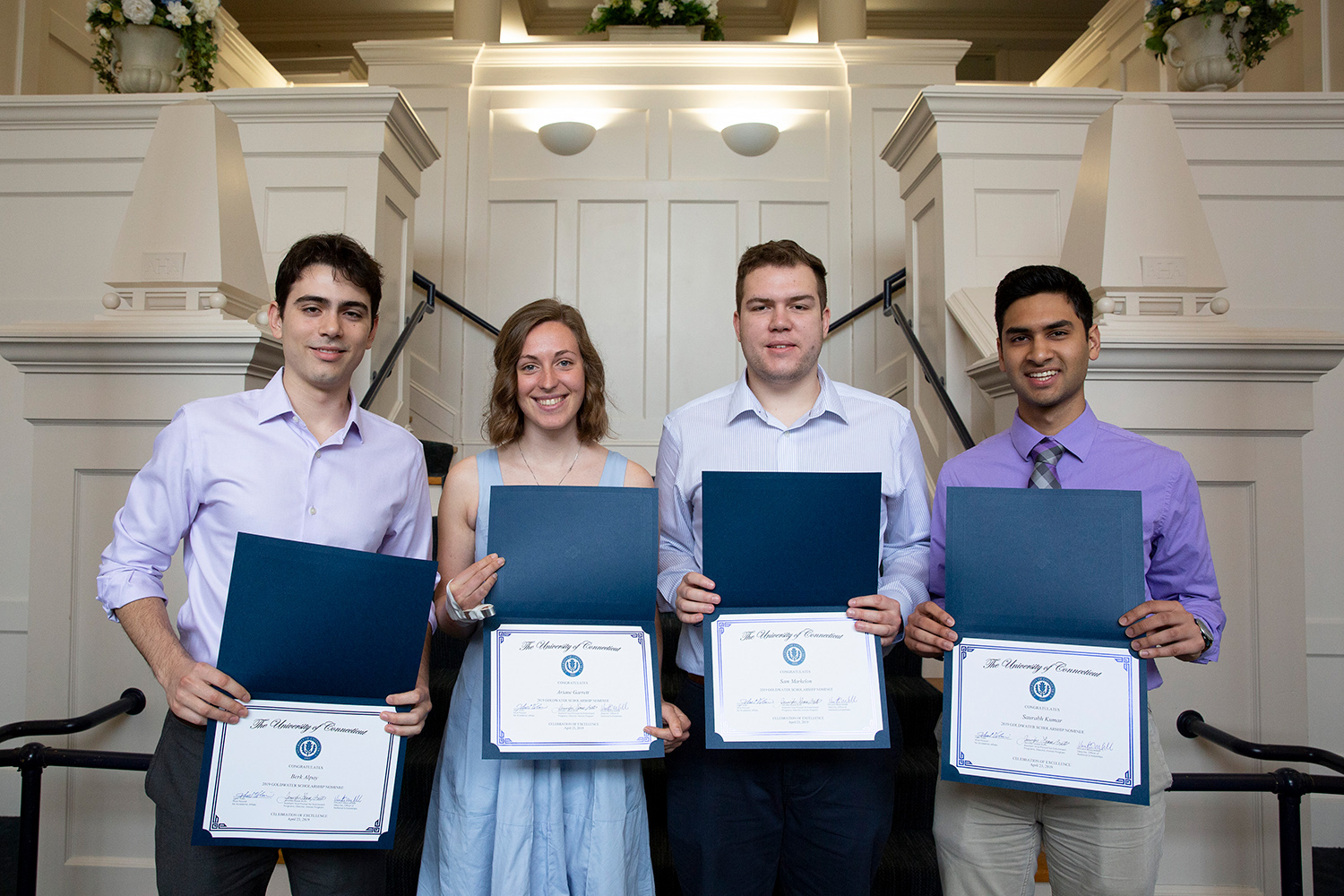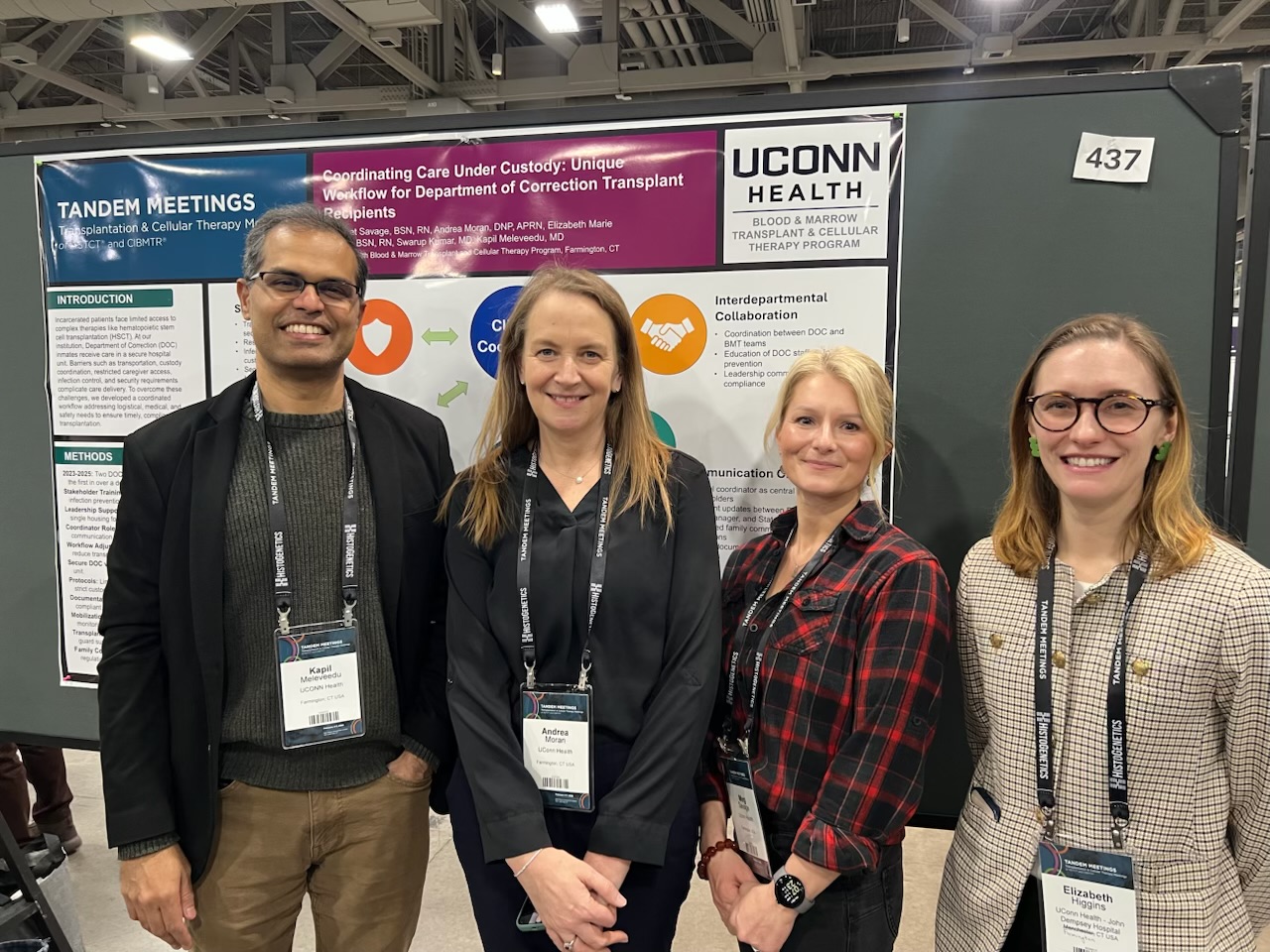The University of Connecticut has produced four Goldwater Scholars in 2019 – marking the first time the school has had four winners in a single year. The Goldwater Scholarship is considered the nation’s premier scholarship for undergraduates studying math, natural sciences, and engineering. Schools can nominate a maximum of four students per year.
The students are: sophomore Berk Alpay ’21 (ENG, CLAS) of Storrs, Connecticut, a computer science and mathematics majors with a statistics minor; and juniors Ariane Garrett ’20 (ENG, CLAS) of Pleasant Valley, New York, a biomedical engineering and Spanish major; Saurabh Kumar ’20 (CLAS), of North Andover, Massachusetts, a physiology and neurobiology major with a minor in statistics; and Sam Markelon ’20 (ENG), of Burlington, Connecticut, a computer science major with a minor in mathematics.
The four UConn winners are among just 496 students selected nationally for the award.
The Goldwater Scholarship was established by Congress to honor the late U.S. Sen. Barry M. Goldwater, with the purpose of identifying students of outstanding ability and promise, and encouraging them to pursue advanced study and research careers. Scholars receive one- or two-year awards that cover the cost of tuition, fees, books, and room and board up to a maximum of $7,500 per year.
Alpay plans to pursue a doctorate and a research career in computer science after graduation. He has been interested in artificial intelligence and neural networks since high school, and found an opportunity to apply them in an Outage Prediction Model group in the Eversource Energy Center at the beginning of his freshman year at UConn. His focus has been on developing machine learning techniques to accurately predict power outages in Connecticut that are caused by storms, which are growing in severity under climate change.
Alpay received the Dominick A. Pagano Endowed Scholarship in Computer Science & Engineering in 2018. He is a science contributor to the Daily Campus newspaper.
Garrett plans to pursue a doctorate in biomedical engineering. Since her freshman year, she has been working in the Hoshino Laboratory at UConn on implantable medical devices, specifically a novel cerebral spinal fluid shunt capable of measuring flow in vivo. She was named a Holster Scholar at UConn after her freshman year, and has also received an IDEA grant from the Office of Undergraduate Research.
Her work on the implantable optical read out system was patented in spring 2018; the following summer, she received a Summer Undergraduate Research Fund (SURF) award. Garrett is also vice president of the UConn chapter of Engineers Without Borders, a Peer Research Ambassador, and a tutor in the Engineering Tutoring Center.

Kumar plans to pursue a medical degree in neurobiology to investigate effective therapies for patients with central nervous system damage following injury and lesioning. His research career began the summer of 2015 in the Cao Lab at the University of New England College Of Osteopathic Medicine, where he investigated glial cell inflammatory responses to chronic morphine use in a rodent AIDS infection model. This work was published in the Journal of Neuroimmunology.
He has conducted research in the Conover Lab at UConn, characterizing the normal development of the brain’s lateral ventricles and the associated ventricular-subventricular zone stem cell niche, which was recently published in the journal: Development. Using this normal control model, Kumar is currently characterizing development of the stem cell niche in fetal-onset hydrocephalus using archival tissue samples and MRI scans. He is also working on an induced-mutation hydrocephalic mouse model for his University Scholar project, which was supported by a SURF grant in 2018.
Kumar is also co-president of the UConn KDSAP chapter – a student-run organization that organizes and provides free kidney health screenings to medically under-served populations. And he serves as a mathematics tutor for K-12 students in virtual online classroom and in-person settings.
Markelson plans on earning his doctorate in computer science, focusing on cryptography and information security. In his freshman and sophomore year, he was heavily involved in nuclear research. In the summer of 2017, he worked on simulation software at Jefferson National Laboratory in Newport News, Virginia. The following summer, he studied at L’Institut de physique nucléaire d’Orsay just outside Paris, working on data analytic tools for accelerator experiments.
In the fall of 2017, he began working in the computer science and engineering department, doing novel research involving the analysis of quantum key distribution protocols with evolutionary algorithms. Markelson coauthored a paper for the 2018 Association for Computing Machinery (ACM)-Genetic and Evolutionary Computation Conference.
Markelson received an IDEA grant to work on analysis of post-quantum cryptosystems, specifically the lattice-based NTRUEncrypt. He served as an undergraduate teaching assistant this past semester, and is also involved with the ACM student chapter.



